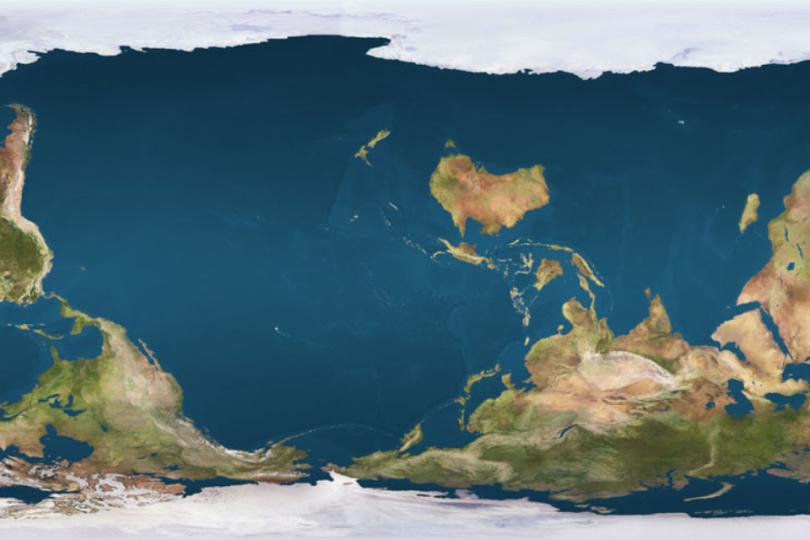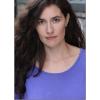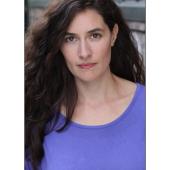Pushed together/Pulled apart

Thank you Derek for inviting me into this space. It's like The Skimm for arts peeps! This week I’m preoccupied by climate change; how we generalize each other; how we are afraid and this quote from Lena Waithe: “Things that make us different, those are our superpowers.”
How the climate changed art. How will climate change, change art?
The Earth is revolting this fall, producing hurricanes of herculean strength and incredibly destructive earthquakes. I think we all have to stare climate change in the face. Hello, climate change. I am to blame. Every time we get in a car or plane it’s time we acknowledged we are a part of this. MIT Professor Kerry Emanuel writes this week in the Washington Post how we need to stop referring to this insane weather as natural. It’s a disaster. Not a natural disaster. Although in this Slate article Eleanor Cummings tries to assure us that it’s not the end of the world.
It’s surprising there isn’t more theater willing to tackle it. Never fear however, there is quite a bit around the Twin Cities. Jessica Huang will be leading a workshop at the Playwright’s Center in October about writing plays about climate change. Howlround put together this list of plays and articles about theater on the topic. Northern Spark focused this year on “Climate Chaos.” In addition, over the years Bodycartography Project has made a few pieces on the topic and this year’s Picnic Operetta from Mixed Precipitation was Philemon and Baucis—Planet in Peril. When I was in high school I wrote a futuristic play about global warming and how the Earth self destructed and got rid of all humans. Except two. Me (of course) and the guy I had a HUGE crush on. Maybe I should dig that one out of the boxes in the basement.
Fear that other. Go Ahead, we always have.
I hope for a theater that can move us into knowing rather than assuming. Peter Brook writes in a short piece for theartsdesk “Our lazy habit is to generalize. Look closer, however, and you will discover that, much as the atom—once opened—contains a universe, in the same way if we linger fondly within a phrase, we find within each word and every syllable that the resonances are never twice the same.” We might be more mindful, perhaps of noticing when statements like The Russians/The Muslims/The Buddhists/In Africa etc. pop out of our mouths.
A horrid, terrible thing is happening in Myanmar. A group of Nobel Laureates and others have written an imploring letter to the United Nations Security Council to intervene on the mass killings of the Rohingya. We humans have the unfortunate habit of blaming whole people's for the actions of a few, time and time again. We must admit we are easily influenced by the energy around us, by the fury and frenzy of the mob. How do we stand apart from the massive energy that hurdles towards destruction? In 1994 the Genocide in Rwanda happened. The world sat back and watched. There are always larger forces at work. But to get so many people to just believe they should go after another they have to get sucked into believing the generalization.
Rwandan performance artist and dancer, Dorothee Munyanez’s “Unwanted”, is playing at the Baryshnikov Arts Center in New York this month and in The Paris Autumn Festival. In this interview on culturebot she speaks to how art puts us back together “we are here to mend that which has been broken.” Locally, How to Use a Knife at Mixed Blood, opening this week, talks about the aftermath of the Rwandan genocide, immigration (and friendship in a chaotic restaurant kitchen). Full disclosure—I’m in it.
Performance eventually serves to help us digest and figure out what in the world was happening in that moment. As we watch events unfold we know at some point, there must be a play to recreate and understand. To get underneath that pain.
Playwright, Jonas Hassen Khemiri wrote in a 2013 essay “Sweden’s Closet Racists”-- “We happened to have last names that reminded this country that it is part of a larger world.” This quote ricochets in my chest. Maybe it does for you too? And of course, I think Jonas is my Swedish best friend because he is Tunisian and Swedish. I am Algerian and Minnesotan. And Tunisia is right next to Algeria and Minnesota is basically Sweden so…
His play, ≈[almost equal to] is playing right now at Pillsbury House Theatre. I’m also a bit of a personal finance geek and Khemiri’s play brings us into the heart of the irrational places that our relationship to money takes us. Khemiri was interviewed by The New Yorker this week. He talks about being “hypnotized” by the story of Don Quixote as a kid. Coincidently, Theater Latte Da has a production playing right now of Man of La Mancha set in an immigration detention center.
A lot of these feelings/experiences/anxieties/larger-complex-questions-and-their-corresponding nuances-that-the-Amercian-media-often-fail-to-address are explored in the films that are showing in the upcoming Mizna Twin Cities Arab American Film Festival September 27-October 1. There are films from all over the MENA region (that's The Middle East and North Africa).
Continuing on the theme…Yusuf El Guindi wrote this week for American Theatre magazine on how most American theatre still presents Arab and Muslim characters as violent, oppressive and the enemy. El Guindi wonders why in the world are we not seeing the relationship between the Middle East and the USA show up in more theater. As a story telling platform how do we make sure that we are not continuing to reinforce what is convenient to believe, in order for the mob to maintain their enemy?
I am hopeful that there is art happening around the world right now that pulls us out of the generalizing and helps us remember to be specific, see the whole picture. Find the human. Aziz Ansari wrote in an email to a NY Times journalist, after the Emmys: “Personal stories, no matter how specific they may seem, when told with honesty and heart, can connect universally with everyone.”
Look closer, however, and you will discover that, much as the atom—once opened—contains a universe.




